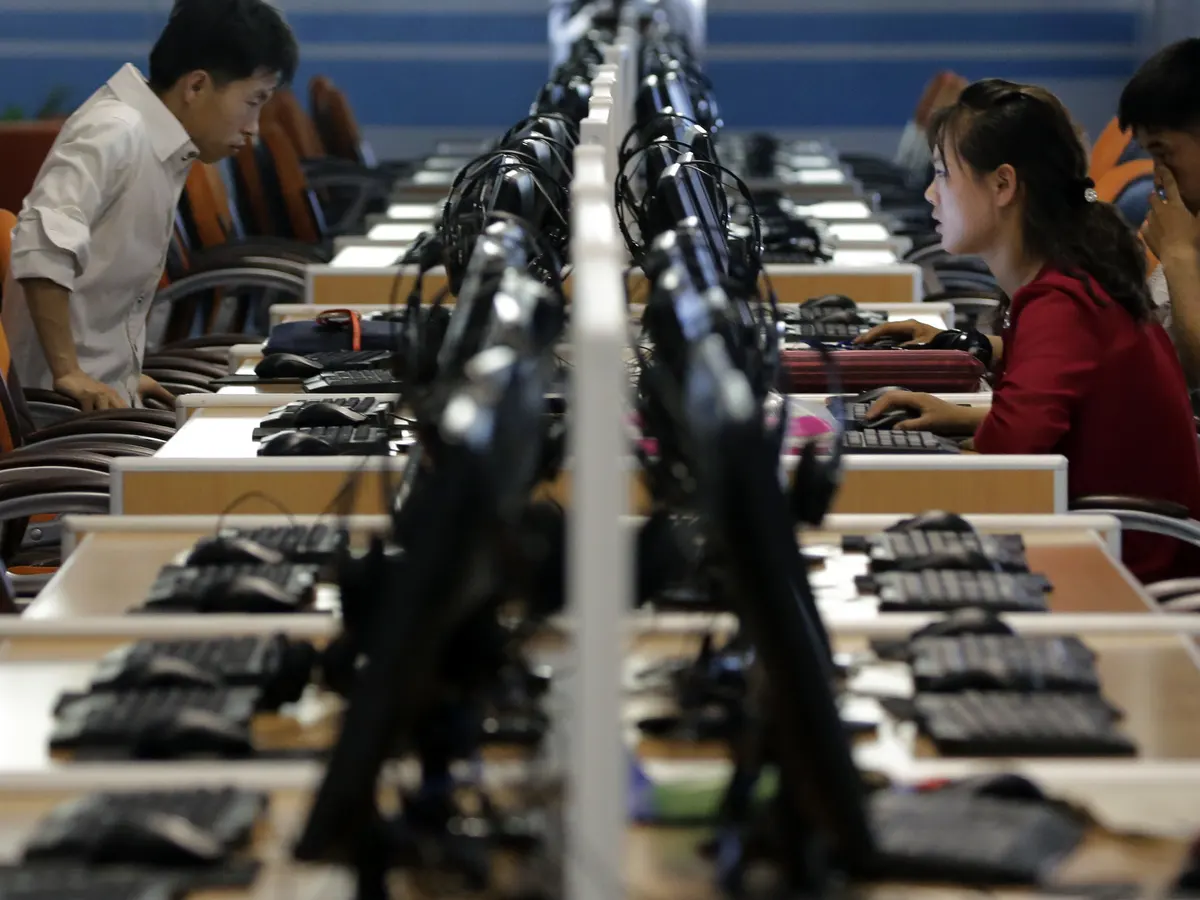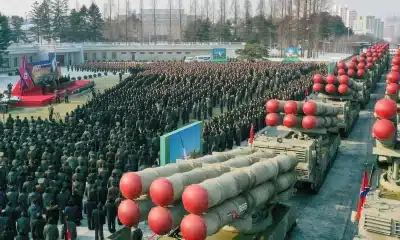News
Thousands Of Remote IT Workers Sent Wages To North Korea To Help Fund Weapons Program, FBI Says

ST. LOUIS & North Korea— Officials from the FBI and Department of Justice have stated that thousands of information technology contractors employed by U.S. companies have secretly transferred millions of dollars of their wages to North Korea for years in its ballistic missile program.
Wednesday, the Justice Department announced that North Korean-contracted and dispatched IT personnel to work remotely for U.S. companies in St. Louis and elsewhere had been obtaining employment under pretenses. According to statements made by FBI officials at a news conference held in St. Louis, the funds they acquired were allocated to the North Korean weapons program.
According to court documents, the North Korean government allegedly deployed tens of thousands of highly skilled IT professionals to reside predominantly in China and Russia to deceive American and international companies into believing they were freelance remote workers. Special agent in command of the FBI office in St. Louis Jay Greenberg, stated that the employees paid Americans to use their home Wi-Fi connections, among other methods, to give the impression that they were operating in the United States.
Any organization that employed freelance IT workers “likely” hired an individual involved in the scheme, according to Greenberg. On Thursday, an FBI spokesperson stated that North Korean agents had contracted with businesses throughout the United States and other nations.
“We can confirm that thousands of North Korean IT personnel are involved in this,” said spokeswoman Rebecca Wu.
In the ongoing investigation, federal authorities have declared the confiscation of seventeen domain names and $1.5 million.
According to FBI officials, the scheme is so widespread that employers must be extra vigilant in their recruiting practices, including mandating that interviewees be videotaped.
Greenberg said in a news release, “At a minimum, the FBI advises employers to take additional proactive measures with remote IT personnel to make it more difficult for malicious actors to conceal their identities.”
The annual wages of the IT personnel contributed millions of dollars to financing North Korea’s nuclear programs. The Justice Department stated that in some instances, North Korean employees also breached computer networks and stole information from the corporations that employed them. The agency also maintained access for future extortion and hacking operations.
Officials did not specify the year the practice began, the names of the companies that unknowingly employed North Korean laborers or how investigators became aware of it. However, federal authorities have been aware of the scheme for some time.
An advisory warning was jointly issued by the State Department, Department of the Treasury, and the FBI in May 2022 regarding endeavors by North Korean individuals “to secure employment under the guise of non-North Korean nationals.” The advisory noted that the Kim Jong Un regime has “placed a greater emphasis on education and training” in IT-related subjects in recent years.
According to John Hultquist, head of threat intelligence at the cybersecurity firm Mandiant, North Korea has been using IT freelancers to help finance its weapons program for over a decade. However, the COVID-19 pandemic accelerated the effort.
Thousands of remote IT workers sent wages to North Korea to help fund weapons program, the FBI says.
Hultquist stated, “I believe the post-COVID world has created a great deal more opportunity for them, as remote hiring and freelancing are now much more natural components of the business than they were previously.”
Hultquist stated that North Korea also employs workers in other fields to recoup funds for its weapons program; however, tech workers are compensated more lucratively and thus constitute a more profitable resource.
As a reciprocal response to North Korea’s launch of over a hundred missile tests since the beginning of 2022, the United States has increased military exercises with its Asian allies, elevating tensions on the Korean Peninsula.
In recent years, the Justice Department has endeavored to uncover and impede an extensive array of criminal schemes designed to support the North Korean regime, including its nuclear weapons program.
In 2016, the United States levied charges against four Chinese nationals and a trading company because they utilized front companies to circumvent sanctions imposed on North Korea for its nuclear weapons and ballistics programs.
The Justice Department indicted three North Korean computer programmers and members of the government’s military intelligence agency in connection with various global cyberattacks that, according to officials, were executed at the regime’s behest two years ago. At the time, law enforcement officials stated that the prosecution’s case underscored the profit-oriented motivation underlying North Korea’s malicious hacking, in contrast to other adversarial countries such as Russia, China, and Iran, which primarily pursue espionage, intellectual property theft, or democratic disruption.
North Korean leader Kim Jong Un reportedly demanded in September an exponential increase in nuclear weapon production and a greater role for his nation in a coalition of nations engaging the United States in a “new Cold War,” according to state media.
In February, experts from the United Nations reported that government-affiliated North Korean hackers seized virtual assets with an unprecedented value of over $1 billion and $630 million in the previous year. The panel of experts stated in a report that the hackers gained access to digital networks involved in cyberfinance and stole information from governments, individuals, and businesses that could be useful for North Korea’s nuclear and ballistic missile programs using ever more sophisticated techniques.
SOURCE – (AP)









































